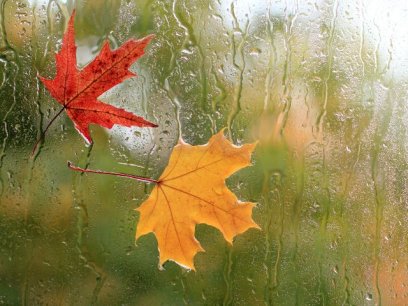
Looking to make some changes in your routine this year? Whether it's saving money, making healthier choices, or reducing your environmental footprint, small steps can help you reach your goals. To help get you there, check out the free, downloadable 2026 Resolve to Save calendar. This resource is full of tips and strategies for making the most of what you have, conserving resources, and minimizing your environmental impact along the way.
According to the American Psychological Association, your resolutions are more likely to stick if you have a concrete plan, make changes in small steps, and make use of your support network. This calendar can serve as a roadmap for your conservation resolutions, giving you a plan of action, and helping you to add small improvements to your routine each month.
Want to make more of an impact this year? Talk with your friends, family, or roommates to brainstorm additional ways you can save water, energy, and other resources in your day-to-day life.
RESOLVE TO SAVE
Each month in the calendar has a different theme, such as the conservation of water, energy, or gas, with a background fact and two resolutions provided. Click the links below to jump to that month's tips.
January | February | March | April
September | October | November | December
January
Cut energy costs with cozy tweaks

Did you know? Heating is the largest energy expense for the average home in the United States. (Energy.gov)
Resolve to save:
- Turn the thermostat back 7-10ºF for eight hours a day when you're asleep or out of the house. If you do the same in the summer (backing off the A/C) you can save around 10% per year on your heating and cooling bills. (Energy.gov)
- Consider installing a heat pump in your home. Despite their name, heat pumps are versatile systems that can heat your home in the winter and cool it in the summer while using significantly less energy than conventional HVAC systems. (Energy.gov)
February
Soak up savings in the kitchen

Did you know? The average American family spends more than $1,000 per year in water costs, but can save more than $380 by switching to WaterSense-labeled fixtures and ENERGY STAR-qualified appliances. (EPA WaterSense)
Resolve to save:
- Put down the gloves! Wash dishes in an ENERGY STAR-qualified dishwasher instead of by hand to cut utility bills by more than $100 per year, and to save yourself more than 230 hours of personal time annually. (ENERGY STAR)
- Your dishwasher will use about the same amount of energy and water per cycle, regardless of how much you fill it. Make the most of that energy, water, and utility cost by running full loads as much as possible. (ENERGY STAR)
March
Power down during spring cleaning

Did you know? In 2024, the average household in the US spent more than $1,642 per year on electricity. (EIA)
Resolve to save:
- Having a light bulb moment? Using an ENERGY STAR-certified bulb can save you about $66 over the course of the product's lifetime. (Energy.gov)
- Use warm or cold water to do the laundry instead of hot. About 90% of the energy it takes to operate a washing machine comes from heating the water, and unless you're dealing with an oily stain, washing in cold water will generally do a good job of cleaning. (ENERGY STAR)
April
Give conservation some roots
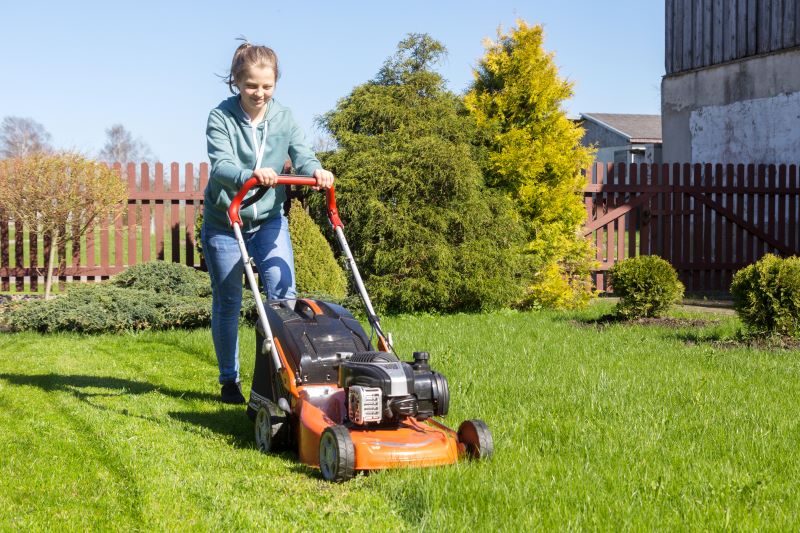
Did you know? Outdoor residential use accounts for nearly 8 billion gallons of water per day in the United States, primarily for landscape irrigation. (EPA Watersense)
Resolve to save:
- Check to make sure your sprinkler system is working correctly before the watering season begins. You could be wasting up to 25,000 gallons of water and $280 over the course of a six- month irrigation season. (EPA Watersense)
- Save water and maintain a lush garden by adopting xeriscaping techniques. Group plants with similar water needs, use mulch to reduce evaporation, and choose irrigation methods that maximize efficiency. (Energy.gov)
May
Waste not, want not

Did you know? It takes 95% less energy to make aluminum cans out of recycled aluminum than it does to make it from "scratch" (from bauxite ore). The energy saved from recycling one aluminum can is enough to power a laptop for 5.2 hours. (EIA)
Resolve to save:
- When it's time to replace an item in your home, consider buying used! Opting to reuse rather than buy new reduces the amount of waste that will need to be sent to landfills. (EPA)
- Incorporate an upcycling habit into your routine with creative DIY projects that breathe new life into old items. For example, you can turn an old t-shirt into a reusable bag or use empty plastic jugs to grow small herbs and vegetables. (NEEF)
June
See green at the gas pump
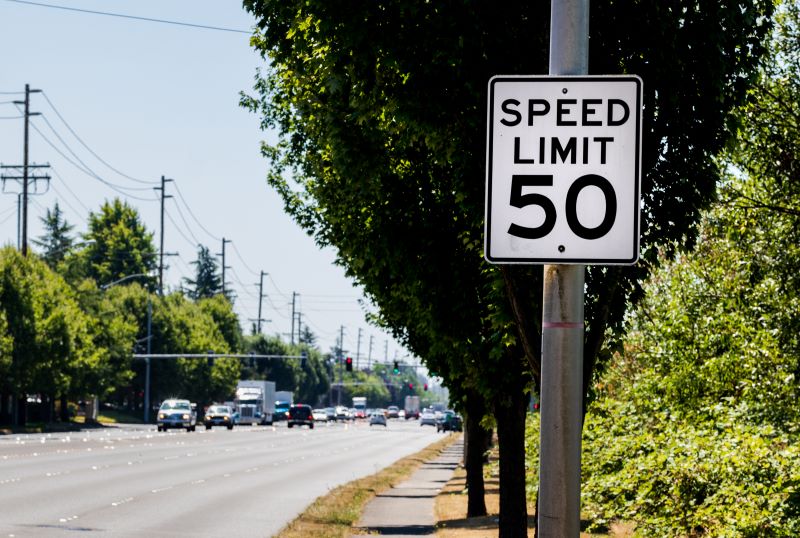
Did you know? Burning one gallon of gasoline produces about 20 pounds of carbon dioxide, a greenhouse gas. (FuelEconomy.gov)
Resolve to save:
- Obey posted speed limits. Gas mileage drops quickly at speeds over 55 miles per hour for midsized gas vehicles and 45 for midsized electric vehicles. While costs vary depending on the vehicle, you can assume that every 5 mph you drive over 50 mph is like paying an additional $0.27 per gallon of gas. (Energy.gov)
- Don't drive aggressively! On top of being unsafe, speeding, rapid acceleration, and sharp braking waste gas, lowering your car's gas mileage by 15-30% at highway speeds. (FuelEconomy.gov)
July
Put your cooling bills on ice

Did you know? Nearly 90% of US homes use air conditioning. This cooling accounts for about 19% (254 billion kilowatthours) of household electricity consumption. (EIA, EIA)
Resolve to save:
- Switch your ceiling fans to spin in a counterclockwise direction. By using a ceiling fan, you can raise the thermostat setting up to four degrees without sacrificing your comfort. Just make sure to shut it off when you leave the room! (Energy.gov)
- Regularly clean and replace your cooling unit's air filter to lower the unit's energy consumption by 5-15%. This is the quickest way to save energy on home cooling! (Energy.gov)
August
Kick fuel savings into high gear
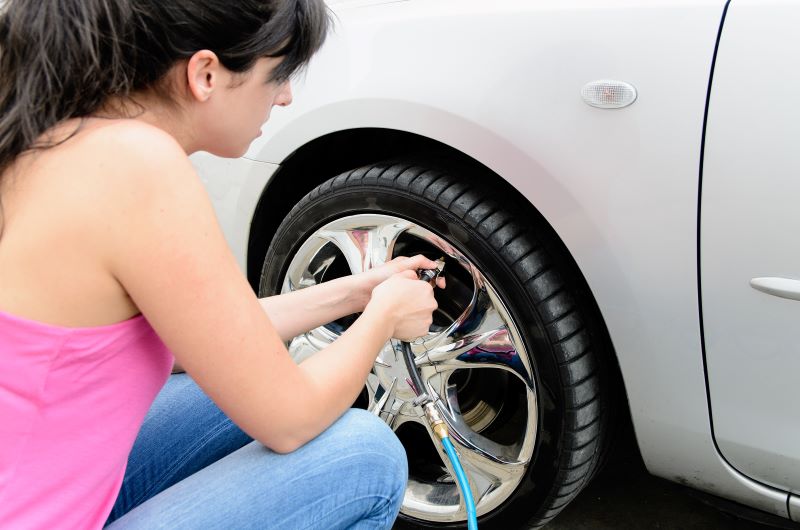
Did you know? In 2022, greenhouse gas emissions from transportation accounted for 29% of total US greenhouse gas emissions. (EPA)
Resolve to save:
- If you're idling your car for more than 10 seconds, you're likely using more fuel than you would to turn the engine off and restart it. (Energy.gov)
- Check your tires regularly. You can boost your gas milage by as much as 3% just by maintaining manufacturer-recommended tire pressure. (FuelEconomy.gov)
September
Reduce your carbon footprint

Did you know? School buses are one of the safest forms of transportation. School bus related accidents account for less than 1% of all traffic deaths. (NHTSA)
Resolve to save:
- Opt for walking, biking, or using public transportation when possible to ease traffic congestion and reduce your environmental impact. Nearly 60% of US transit buses utilize alternative fuels, offering a greener way to travel and significantly lowering carbon emissions per passenger mile. (AFDC.Energy.gov)
- Make a plan to complete all your errands in as few trips as possible. A warm engine has better fuel economy than a cold one, meaning you can save fuel and money by combining smaller trips into a larger one. (FuelEconomy.gov)
October
Cut water usage and drink up the savings

Did you know? The average American family uses more than 300 gallons of water per day at home. (EPA WaterSense)
Resolve to save:
- Address leaky faucets as soon as possible. While they may seem like just a nuisance, a leaky faucet that drips at a rate of one drop per second can waste more than 3,000 gallons per year. (EPA WaterSense)
- Embrace shorter showers to significantly cut down your water and energy use. Reducing your shower time by even a few minutes can save thousands of gallons of water each year, translating into substantial savings on your utility bills. (EPA)
November
Go above and beyond traditional recycling
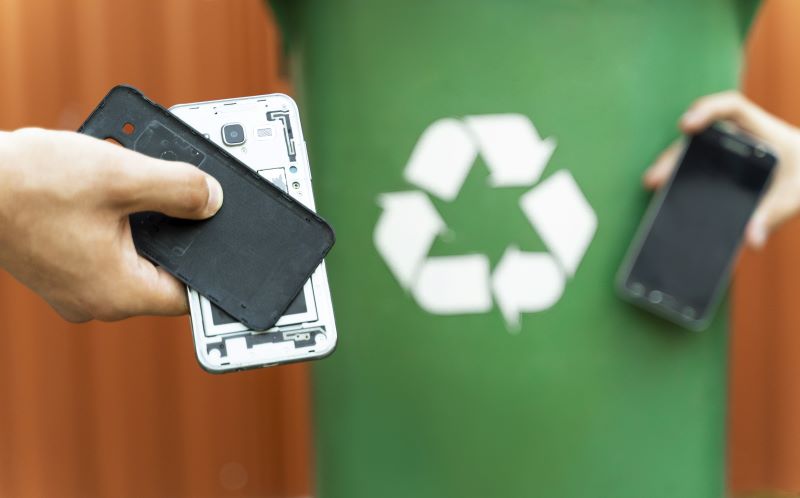
Did you know? The recovery rate of recycled materials in the US increased from less than 10% of generated waste in 1980 to more than 32.1% in 2018. (EPA)
Resolve to save:
- Think beyond paper and plastic. If you have old electronics cluttering your home, look for local recycling options. Many electronics stores will accept old computers, phones, appliances, and television sets to recycle for free. (NEEF)
- Recycle non-traditional materials. Did you know carpets can be recycled? What about old household furniture? Check out earth911.com to find more recycling solutions near you!
December
Celebrate conservation!

Did you know? Online shopping can generate 4.8 times more packaging waste than in-store purchases. Choosing gifts that require minimal or no packaging can significantly reduce the waste that ends up in landfills. (NEEF)
Resolve to save:
- Nickel Cadmium, Lithium-ion, Alkaline—when it’s time to dispose of old batteries, the materials they contain determines which of the various recycling options you should use. (EPA)
- When decorating, opt for energy-efficient LED lighting. These bulbs can consume 90% less energy than their traditional incandescent counterparts, and they last 25 times longer. (Energy.gov)
Congratulations on sticking with your resolution to save this year! We hope this has helped you develop some environmentally friendly habits in your day-to-day life. Know a family member or friend who could use a good resolution this year? Forward them this calendar or send them a link to NEEF's Resolve to Save Calendar page for 2026!

